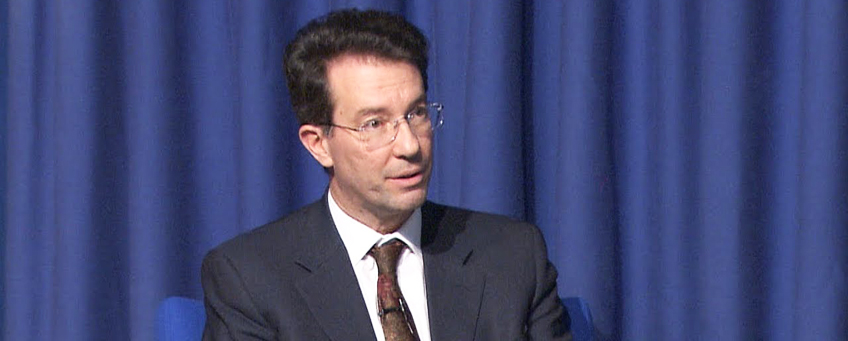Why philosophical knowledge matters for Public Administration
The argument put forward in this article is that philosophical knowledge may enable a deeper understanding of key issues in public governance, public administrative system, and public services. Bringing philosophical knowledge into public administration – far from representing a retreat in the Ivory Tower - is of the utmost practical significance.

April, 08 2019 | Edoardo Ongaro
The argument put forward in this article is that philosophical knowledge may enable a deeper understanding of key issues in public governance, public administrative system, and public services. Bringing philosophical knowledge into public administration – far from representing a retreat in the Ivory Tower - is of the utmost practical significance.
Take the example of the legitimacy of a public governance arrangement. Legitimacy of public governance is a key issue in an epoch of crumbling certainties, and legitimacy in the eyes of citizens is a crucial enabler of ‘good’ public governance. This topic is studied from the perspective of social sciences along two very important lines of inquiry: (1) the level of trust by citizens in public governance arrangements; (2) the satisfaction of users of public services. However these two lines of inquiry may not suffice by themselves unless a broader perspective is taken. Investigating the drivers of trust and satisfaction in citizen-users is important but at a more fundamental level, ‘satisfaction of expectations’ is not synonymous with ‘well-being’ and ‘fulfilment’. A crucial problem lies in the extent to which ‘satisfaction’ may not be likened to ‘well-being’ in this deeper sense, that is, what the Ancient Greek philosophers referred to as eudaimonia (fulfilment, living a full life) — a notion that may be deemed to mean much more than satisfaction. The ultimate rationale for the legitimacy of a public governance arrangement lies in whether public governance may enable each and every member of the political community to improve his well-being: this in a nutshell is the so-called common good argument made by the Ancient Greek philosopher Plato. Alternative philosophical arguments may be put forward to provide the ultimate justification of a public governance arrangement, such as the Social Contract Theory stemming from Rousseau’s thinking, or the theory of Social Justice tirelessly propounded by John Rawls. My main point here in the brief space of an article is not so much which philosophical stance may be preferred but to convince the reader that the preliminary and more fundamental issue is that any meaningful discussion of the legitimacy of public governance may only be found when a Social Sciences approach is wedded to philosophical understanding: that is, when philosophical knowledge is brought into the picture.
The problem is that unfortunately there seems to be little systematic resort to philosophical knowledge in the scientific and professional literatures on Public Governance, Public Administration and Public Management. In a book-length work, I endeavour to provide the reader sympathetic to the need to bring philosophical thought into the study and the practice of public administration with a hopefully agile introductory work on how to do this (Ongaro, Edoardo. 2017. Philosophy and Public Administration: An Introduction. Cheltenham, UK and Northampton, MA: Elgar). This way, in all humbleness, I hope to have contributed a small brick to the much-needed bridge between Social Sciences and Philosophy in and for Public Administration and Public Governance.
The book discusses a wide range of themes: ontological, political philosophical, epistemological. It examines the contribution that philosophies such as Kantian and neo-Kantian thinking, Existentialism (notably with reference to the figure of the ‘existentialist public administrator’), Structuralism, Phenomenology, Marxism and Gramsci, Historicism, neo-Scholastics and Thomism — among others — may contribute to Public Administration. The question of the legitimacy of public governance (hinted at in the previous paragraph) is elaborated, with applications to the implicit argument for legitimacy contained in fashionable (or that used to be fashionable) doctrines for the reform of the public sector (such as the New Public Management, the New Public Governance, the Neo-Weberian State, and others). These reform ‘ideologies’ have swept the globe and to a greater or lesser extent, have reshaped the public sector in many countries. Yet little attention has been paid to the logic of justification underpinning these ideas: a more systematic application of philosophical thought would have been beneficial in this regard.
Three masterpieces — the painting Il Buon Governo (The Good Government) by Ambrogio Lorenzetti (1290–1348), the political tract The Prince by Niccolò Machiavelli (1469–1527), and the trail-blazing, genre-setting book Utopia by Thomas More (1478–1535) — are then used as entry points to discuss three themes of major significance for PA: (1) the role of virtues (of governors and citizens alike) in public governance; (2) the meaning of realism (about power, about human nature) in politics and Public Administration; (3) the significance and potential of utopian thinking for Public Administration.
Reflection on the notion of ‘utopia’ and utopian thinking highlights the significance of teleological thinking for Public Administration: thinking in terms of ambitious objectives to be reached, and not just in the terms of the causes of the current situation. It also elicits reflections on the notions of models, paradigms, and ideal-types (the last one famously introduced by Max Weber to provide a conceptual outline of bureaucracy). It seems that in recent years, the pendulum of attention has swung too far towards a frantic the quest for ‘good practices’ to the detriment of thinking in terms of notions such as alternative models of public governance or even of in terms of what are (if any) the paradigms of public administration in history (for example, Western Public Administration and Confucian Public Administration represent two distinct paradigms – but little attention is paid to what they may mean for contemporary Public Administration). As said, ideal-typing is a ‘lost art’ that may have a great deal to teach us if we are to come up with new forms of Public Administration for the 21st century. A clearer sense of the direction of travel may be gained also by means of utopian thinking. Such an approach would allow us to weigh up the pros and cons of possible alternative futures and to set benchmarks against which to critically review the present situation (providing of course provided that utopian thinking is re-discovered in the critical spirit set out by More’s original work and care it is taken to avoid falling into hellish dystopias).
In sum, philosophical thought may better equip public administrators and scholars of PA alike to face the challenges of the 21st century. Bringing philosophy into public administration (better: bringing back philosophy into public administration, as it originally was in scholars like Weber and Waldo) may open up new research paths. Philosophical thought may make a valuable contribution not just to researching PA, but to opening the minds of would-be operators in the public sector. That is why philosophical knowledge could and should become part and parcel of the training of Public Administration experts, and be taught in everything from undergraduate programmes to Masters of Public Administration (MPAs), and in Executive Education programmes for public administrators and managers.
Edoardo Ongaro is Professor of Public Management at The Open University and President of the European Group for Public Administration (EGPA). He also serves as Editor of the Public Policy and Administration (now also in Thomson ISI) and Book Series Editor – Policy, Administrative and Institutional Change (Edward Elgar).
References
Ongaro, Edoardo. 2017. Philosophy and Public Administration: An Introduction. Cheltenham, UK and Northampton, MA: Elgar (translations of the book into Castillian, French, and Italian are currently being prepared and are planned for publication in 2019 or early 2020).






















It is mandatory to be registered to comment
Click here to access.
Click here to register and receive our newsletter.